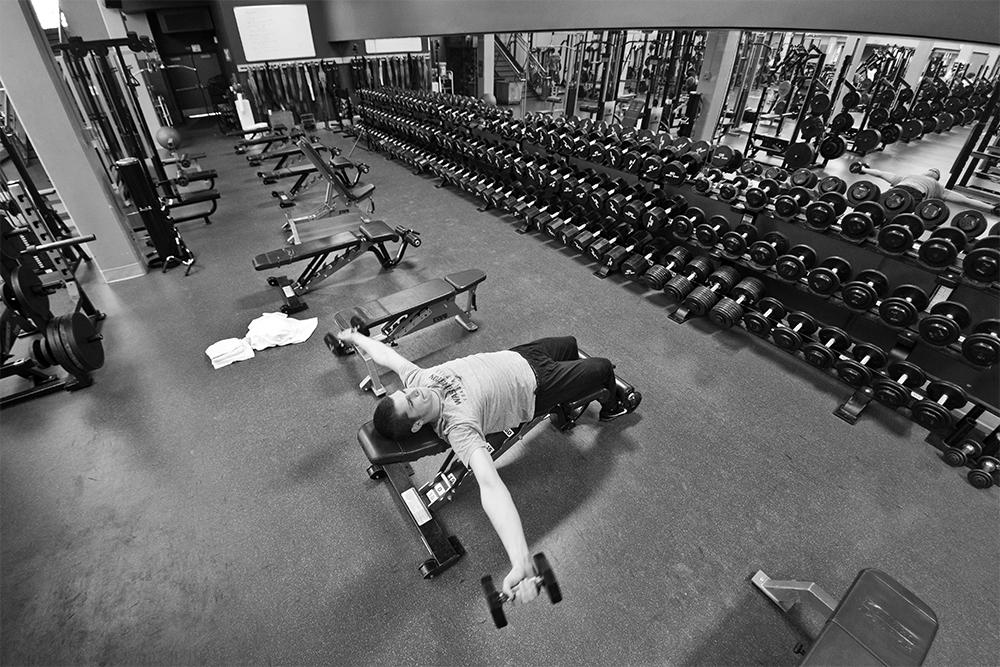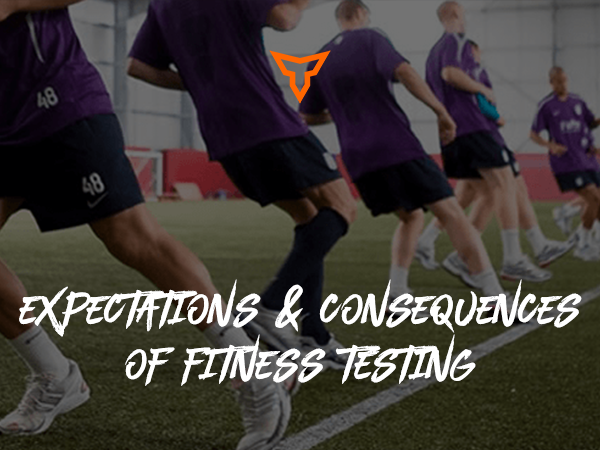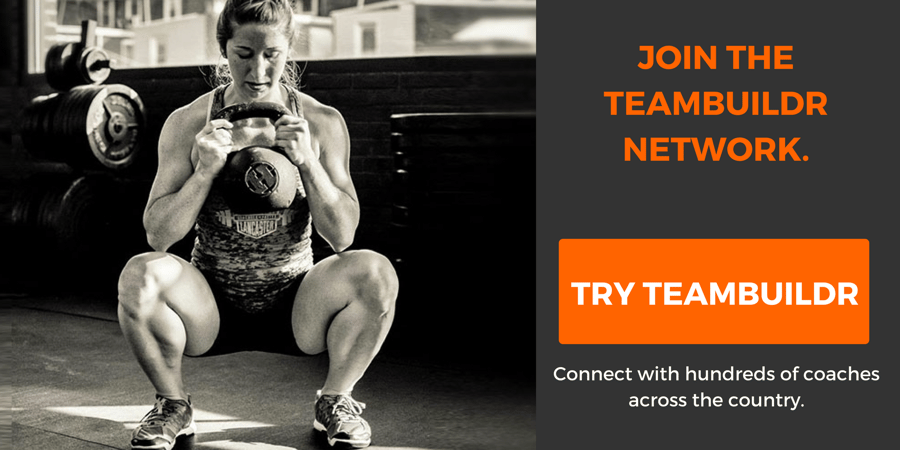Strength and Conditioning Networking 101
As a professional Strength and Conditioning Coach, how many jobs have you applied for and not even made it past the first cut?
You have 5 years of full-time experience, your master’s degree, and worked with many high caliber athletic programs only to get left out of the interview process for a job that you meet the requirements for. You could be on the other side of the coin as well. An undergraduate intern looking for more opportunities to learn or find that graduate assistant position to take the next step in your professional growth.
The reality of the Strength and Conditioning industry is that your resume does not speak as loudly as your friends do. Without a wide and diverse professional network, you will constantly find yourself behind the curve when it comes time to try and land a new position.
There are many different ways to build your professional network. The most obvious way is to go to conferences, pass out business cards, and engage in conversation with as many coaches as possible. This is a great way to open up an initial conversation, but if the conversation ends at the conference you will be forgotten quickly.
Here are the best networking tips and tricks, outside of the traditional conferences:
1. Get away from the conference
Walking through the exhibition halls of the NSCA and CSCCa national conferences is like walking through a busy fish market after the fresh catch comes in. It’s loud, crowded, and everyone is trying to look after their own personal interest. Now take that environment and try to convince someone you just met that you are the missing piece to their staff or could be in the future.
Catching up with these coaches for a drink or a burger following the initial meet up is a great way to continue getting to know other coaches in the industry. The casual setting of a restaurant or a bar can help bring down walls that coaches may put up when they’re being evaluated like live stock in the exhibition hall.
Hanging out and exchanging war stories with other coaches can lead to finding common experiences, training methodologies, and coaching styles. It also gives you the opportunity to make a lasting impression.
My networking rule of thumb is that it’s not how many people you know, it’s how many people that know you. The only way you will be remembered when the application list spits your name out is if you make an impression. Getting away from the conference and meeting the real Mr. Power 5 Director of Strength and Conditioning can help in that process.
2. Disregard the logos
We are all guilty of logo chasing. We’ve all dreamed of landing the big time strength coach job with the six figure salary. Power 5 Director of Strength and Conditioning, SEC Director of Football Strength and Conditioning, and other various job titles are attractive and come with an extremely recognizable logo. That doesn’t mean that you, as a prospective employee, should go staring at the t-shirt while they talk to their friends. The logo on a coach’s shirt doesn’t matter.
If you are truly looking to advance yourself and build a network don’t just look for coaches at large universities or professional sports organizations. Find out where those coaches got their start. Who did they learn from? What systems have they been a part of? If they have any books or published articles give them a read and be able to open up a discussion about the topic. This way you won’t go up to Cal Dietz and ask him if he has heard of Triphasic Training and you can open a real dialogue about building a career.
The last piece of disregarding the logo is understanding that there are quality coaches at every level. Many great coaches work at small schools. You may not aspire to be a head strength coach at a junior college or Division 3 university, but do not discount individuals who are in those positions. You may not see a way to your career aspirations in this potential relationship, but that person could have been an NFL strength coach previously and made the career move to be a better mother or father.
There are world class coaches working with youth athletes because that is where their passion lies. The logo on the puffed out chest of the guy you meet at the conference doesn’t automatically equate to high-level coaching. While it pays to have friends in high places, building lasting relationships with people will work out better in the long run rather than just chasing the logo.
3. Find people who you can learn from
The best way to build your network in a way that will help to advance your career is to find people who you can learn from. This means shutting your ego off and learning. If your boss takes a look at your program and rips it apart, don’t hang your head and get in your feelings. That person is giving you criticism because they want you to succeed. There is an old saying that states, “if you are the smartest person in the room, you are in the wrong room.” This statement should be your mindset when searching for mentors to add to your network.
Find people who will teach you something about anything. Coaching, programming, leadership, financial management, time management, interpersonal relationships, even networking. Find people to learn from and surround yourself with them. It will make you a better professional in the long run.
4. Use Social Media
Social media is a relatively new concept. 10 years ago the only way to get in contact with coaches at other universities was to cold call them or show up at their doorstep prior to a session and beg them to let you hang out for the day.
Now you can just shoot a coach a message and try and set up a Facetime call or Skype conversation. I have dedicated my personal social media pages to trying to get in touch with as many strength coaches as possible and it has led to relationships with coaches in the industry that I otherwise may not have had the opportunity to make.
I don’t just chase logos either. As I scroll through the “people you may know” section of my various social media accounts if someone pops up and is a collegiate strength coach at any level I add them. As soon as they accept (if they accept) my request I shoot them a message introducing myself and setting up a dialogue.
Some respond and are more than happy to continue the conversation, some never respond, some even unfriend me right away. Some people don’t want to cloud their personal accounts with coaching and I understand that. It will not stop me from attempting to connect with every strength coach possible.
By doing this I find people who I can learn from. We can share articles back and forth, talk shop over messenger or video messenger, or even talk about non-coaching related topics. I have a few coaching friends who I talk about dad life with because we all have young daughters. One is an NFL strength coach and the other coaches at a Power 5 university, but we talk about our girls and our families. These connections can pan out in many different ways, but they will not work for you unless you work at taking them to higher levels than just Facebook friends.
Networking can make or break your career, which is why we think sharing these networking tips and tricks is so important. If you have a strong network it will add value to your name in the coaching world. If your name gets brought up in multiple coaching circles you have done all you can to push your career along. You may be known as the guy who shares great content on social media. You may also be one of the three guys who stopped in the middle of the floor of a busy hallway to share horror stories of being a new dad.
No matter what, you have to be known for your skill as a coach and your ability to build strong relationships. If one of those things suffers you will have a hard time advancing your career in this industry.
Subscribe to our blog
Subscribe to receive the latest blog posts to your inbox every week.
Related posts

3 Steps to Advancing Your Career as a Strength Coach

My Players Failed the Conditioning Test, What's Next?

